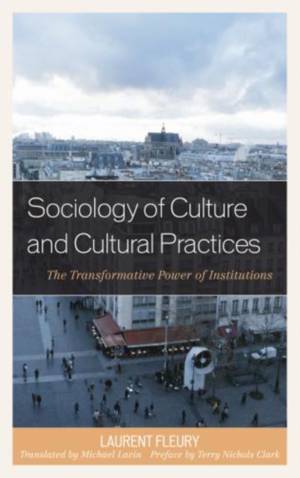
- Afhalen na 1 uur in een winkel met voorraad
- Gratis thuislevering in België vanaf € 30
- Ruim aanbod met 7 miljoen producten
- Afhalen na 1 uur in een winkel met voorraad
- Gratis thuislevering in België vanaf € 30
- Ruim aanbod met 7 miljoen producten
Zoeken
€ 104,95
+ 209 punten
Uitvoering
Omschrijving
Sociology of Culture and of Cultural Practices traces the development of the sociology of culture from its origins (Weber and Simmel) and examines the major trends that have emerged in this branch of sociology. It raises issues of cultural hierarchy, of distinction, and of legitimate culture and mass culture, and focuses on new areas of research, including the role of institutions, the reception of works of art, aesthetic experience, and emancipation through art and presents a synthesis of research and debate from France and the United States. In attempting to understand the work carried out by cultural institutions, Laurent Fleury highlights the power they are capable of exercising: cultural institutions define the spaces in which collective identities, cultural experiences, social practices and ways of relating to art are expressed and crystallized. The power of cultural institutions is often ignored, and the fact that they inform activities, govern practices and encourage individuals to develop a degree of familiarity with culture is unfamiliar to many.
Specificaties
Betrokkenen
- Auteur(s):
- Vertaler(s):
- Uitgeverij:
Inhoud
- Aantal bladzijden:
- 145
- Taal:
- Engels
- Reeks:
Eigenschappen
- Productcode (EAN):
- 9780739174814
- Verschijningsdatum:
- 1/04/2014
- Uitvoering:
- Hardcover
- Formaat:
- Genaaid
- Afmetingen:
- 155 mm x 231 mm
- Gewicht:
- 376 g

Alleen bij Standaard Boekhandel
+ 209 punten op je klantenkaart van Standaard Boekhandel
Beoordelingen
We publiceren alleen reviews die voldoen aan de voorwaarden voor reviews. Bekijk onze voorwaarden voor reviews.











